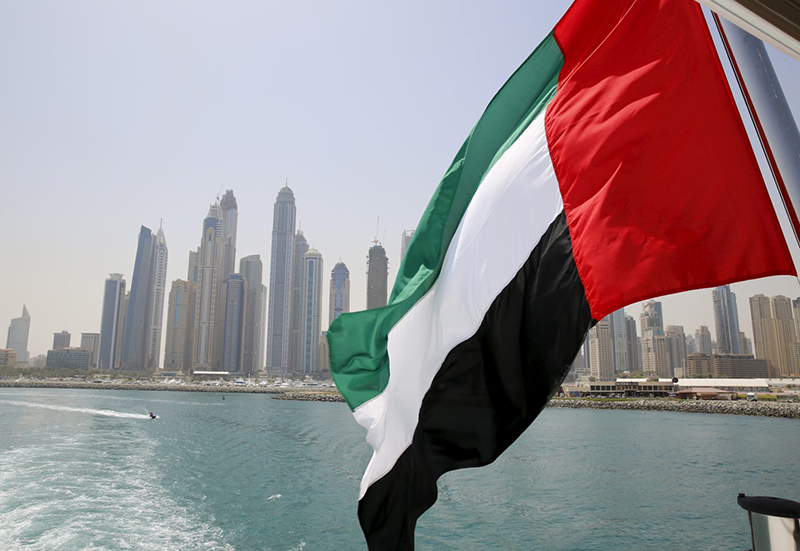- Agriculture
- No Comment
Zimbabwe eyes key role in UAE food security drive as agriculture exports grow

Zimbabwe is positioning itself as a potential cornerstone in the UAE’s food security strategy, with growing agricultural exports and strategic partnerships signalling a new chapter in bilateral trade ties, the head of the Zimbabwean Business Council said.
The southern African nation is diversifying its export portfolio to the UAE, which historically focused more on rare minerals and metals, by shifting its attention to high-value agricultural products.
Simba Makahamadze, Chairman of the Zimbabwean Business Council, told Arabian Business that Zimbabwe is currently exporting “blueberries, rockmelons, citrus fruits and avocados to Dubai.”
“Export volumes continue to grow,” Makahamadze said. “The main driver for the growth is the growing bilateral relationship between Zimbabwe and the UAE and the growing strategic partnerships being established between entities in the UAE and suppliers in Zimbabwe.”
UAE’s food security initiatives
The UAE, a desert nation heavily reliant on food imports, has been investing heavily in food security initiatives. Zimbabwe’s entry into this market comes at a crucial time as the UAE seeks to diversify its food sources.
“Zimbabwe leverages favourable climatic conditions, supported by vast water resources as well as stable sunlight for renewable energy. This creates the ability to grow any type of crop throughout the year,” he added.
The UAE launched a National Food Security Strategy in 2019 with the aim of becoming the world’s best in the Global Food Security Index by 2051. The Gulf country is working to increase domestic production and water supply, promote international trade partnerships, and enforce regulations to enhance nutritional intake and reduce food waste.

The growing trade relationship is not without its challenges. Makahamadze noted that while volumes are increasing, “the data is sometimes understated as most of the produce is being routed via South Africa.” This indirect route potentially masks the true scale of Zimbabwe’s agricultural exports to the UAE.
Recent initiatives aim to address such challenges and further strengthen ties between the two nations. The Zimbabwe-UAE Business Forum, held in Harare earlier this month, brought together UAE-based enterprises and Zimbabwean producers.
“We witnessed the gathering of UAE-based enterprises who visited Zimbabwe to learn more about the available opportunities for importation of agro-based produce from Zimbabwe,” Makahamadze said.
The forum included tours of “tea estates, cattle ranches and processed foods manufacturers that are equally producing for export, and looking at the UAE as a new or growing market for export.”
Zimbabwe’s agriculture sector accounts for 11-14 percent of the country’s GDP, and is a major driver for the economy. The sector employs 70 percent of the population and agricultural products make up nearly half of the country’s exports, accounting for about 45 percent of total export value.
The potential for growth extends beyond fresh produce. Makahamadze noted a “significant interest and subsequent growth in the horticulture and processed foods landscape.” This diversification could provide Zimbabwe with a more robust export portfolio and the UAE with a wider range of food products.
Strategic trade partnerships
Strategic partnerships are also emerging to facilitate this growing trade. “The partnership between DP World and BAK Storage for the rail service between Harare-Zimbabwe and Maputo-Mozambique. This artery of cargo is a key enabler in the movement of goods from Zimbabwe to the ports and to the UAE,” he added.
Moreover, UAE companies are securing their supply chains through direct agreements with Zimbabwean producers.
“There have also been key offtake agreements signed by UAE companies around fresh produce in areas such as blueberries as well as key offtake agreements, also with companies based in the UAE,” Makahamadze said.
DP World, the Dubai-based global port operator, has been expanding its presence across Africa in recent years, investing in ports, logistics, and trade infrastructure. In 2022, the company fully acquired Imperial Logistics, a major African logistics firm, significantly boosting its capabilities in the continent and creating a network that spans from port to final destination across several African countries.
While the focus on agricultural exports is growing, it’s worth noting that Zimbabwe’s overall trade with the UAE reached nearly $3 billion in 2023, with minerals still dominating. However, the agricultural sector’s potential is significant.
“With adequate investment in the agricultural sector, Zimbabwe can become a key contributor to the UAE food security agenda,” Makahamadze stated, underlining the country’s ambition to play a larger role in the UAE’s food supply chain.
